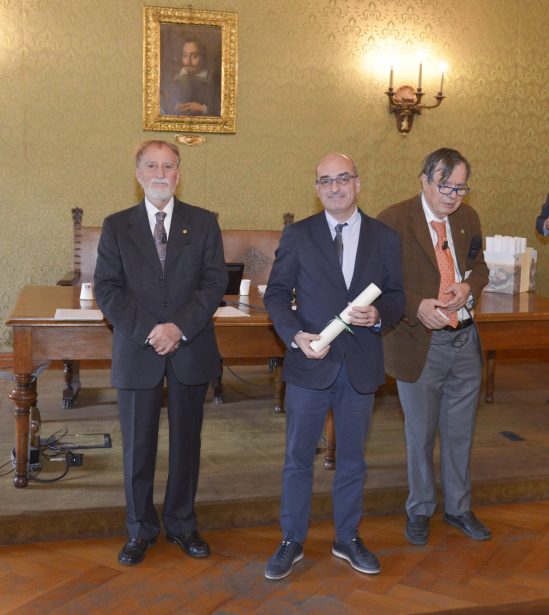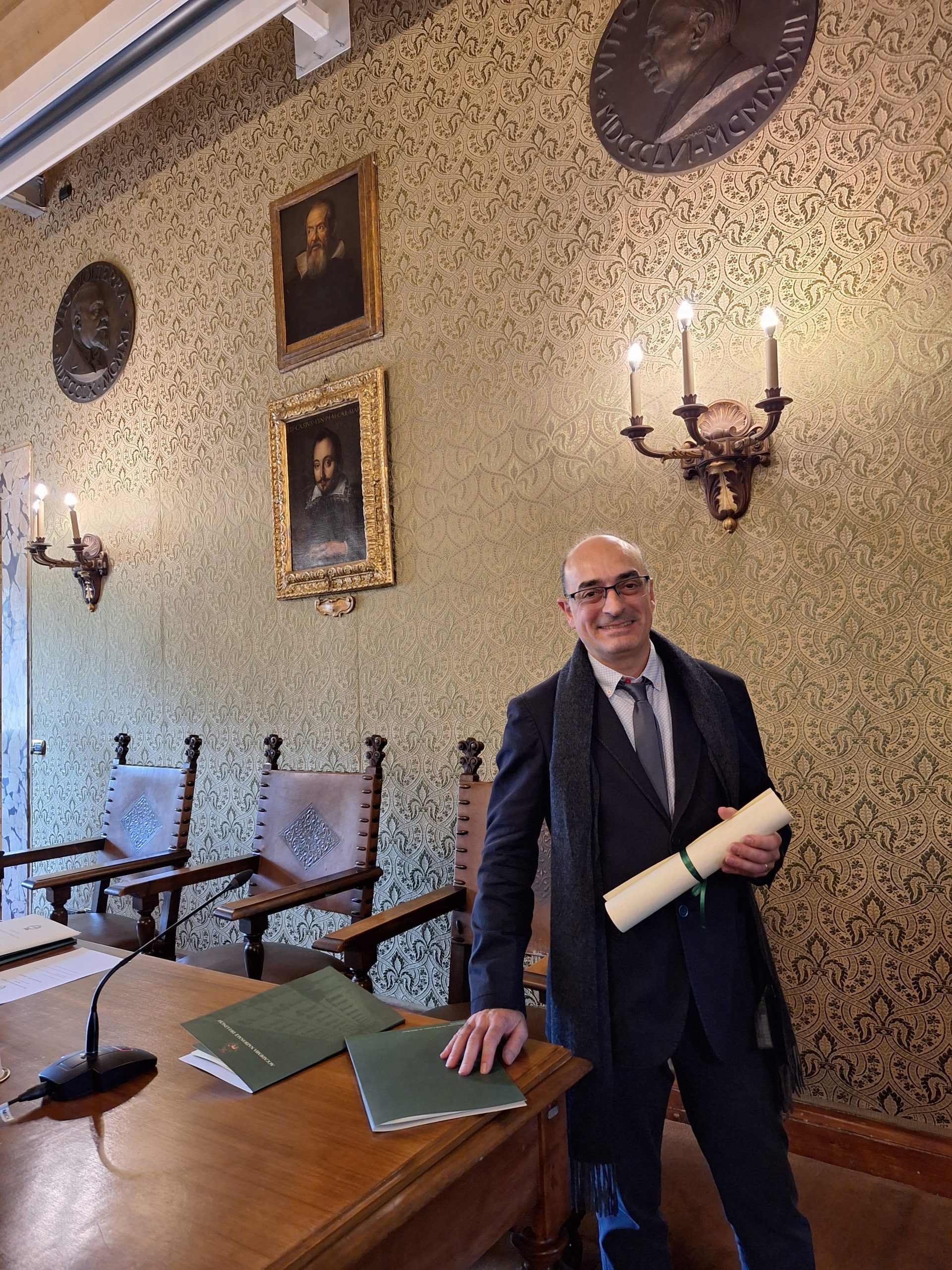The National Academy of Lincei has awarded the prize to the IBE researcher for his contribution to the field of Anthropology and Human Evolution.
Carles Lalueza-Fox, Principal Investigator at the Institute of Evolutionary Biology (IBE), a joint center of the Spanish National Research Council (CSIC) and Pompeu Fabra University (UPF), and current director of the Museum of Natural Sciences of Barcelona (MCNB), has won the international anthropology award that was presented on November 10th at the Palazzo Corsini, the headquarters of the Accademia Nazionale dei Lincei, in Rome, by the President of the Republic, Sergio Mattarella.

From the left to the right: Roberto Antonelli, president of the Accademia dei Lincei, Carles Lalueza-Fox IBE researcher and director of the MCNB, and Giorgio Parisi, nobel of physics.
Founded in 1609, the Accademia Nazionale dei Lincei is the world’s oldest scientific academy and is considered the most important cultural institution in the Italian Republic. It promotes research through scholarships and awards, and noteworthy among its scholarship recipients is none other than Galileo Galilei himself.
Annually, it awards the international “Fabio Frassetto” prize, named after the Italian anthropologist from the University of Bologna, who passed away in 1953 and was known for his work on the reconstruction of the poet Dante Alighieri’s skeleton. The award is granted through an open call to recognize a research career in the field of physical anthropology and carries a prize of twenty-five thousand euros.
“It’s a great honour for me to receive this award that has been won by world-renowned researchers such as David Reich or Chris Stringer; it’s a recognition of a new vision of the human study of the past based on genetics,” Carles Lalueza-Fox points out.

Carles Lalueza-Fox is one of the leading paleogenetic researchers in Europe. Throughout his years at the Institute of Evolutionary Biology (IBE), he has become an expert in the field of paleogenetics by extracting ancient and degraded DNA, and applying computational systems for its analysis. His research covers the study of extinct species and human populations throughout history, as well as the recovery of genomes from ancient pathogens such as the plague, malaria, and typhoid fever.
His research on the genome of Neanderthals and prehistoric humans is an example of his contribution to the field of anthropology, appearing in journals such as Science, Nature, and PNAS. He has also participated in the Neanderthal Genome Project, which recovered the first genome sequence of this human species in 2010. Thanks to his contributions, we now know that some Neanderthals had red hair, practiced female exogamy, and had the genetic potential for speech.
As a result of his study of ancient human genomes, he also wrote the book “Inequality: A Genetic History”, published in 2022 by MIT Press, as well as several popular science publications that have earned him several science communication awards.
